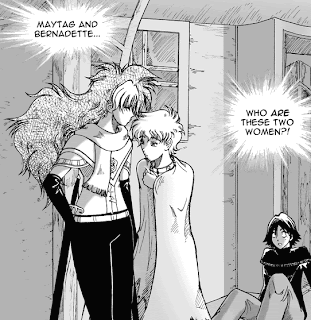Malton is dying. For real this time.
A city born in death, the home town of text-based MMORPG Urban Dead is pretty much empty now, seven years after it came online. It consists of a grid of buildings - 100 suburbs in the city, 100 blocks in a suburb. According to the game's stat log page, there are 11,732 active characters, or a little more than one per block. When the game was young there were five times that many. But Malton is dying a slow death, and an odd one at that, because the zombies never managed to kill all the survivors.
On the contrary, the survivors dominate the game in numbers - as they have for most of its run. They seem content to sit out the death of their city quietly as they go offline, one by one. Even the game's creator seems to be losing interest as additions and modifications become rarer and rarer.
Cultural consensus on any one thing is rare, but the internet seems to be leading the way on the death of the zombie. Cracked.com's Dan O'Brien, the site's editor, wrote in May that he felt zombies had jumped the shark because the CDC had written an article on how to best survive an attack by the living dead:
CDC.gov
There are all kinds of emergencies out there that we can prepare for. Take a zombie apocalypse for example. That’s right, I said z-o-m-b-i-e a-p-o-c-a-l-y-p-s-e. You may laugh now, but when it happens you’ll be happy you read this, and hey, maybe you’ll even learn a thing or two about how to prepare for a real emergency.
Now, what does that sound like? Exactly: Someone trying desperately to use a "cool" cloaking to teach you something useful. O'Brien reached the same conclusion and was even less forgiving about it:
But here's my question: Why the shit should the Centers for freaking Disease Control and Prevention care about going viral? I get that the Internet is a big huge thing, and a lot of people spend a lot of time online -- but that doesn't mean every business and organization needs to try to connect with the Internet on its level, especially an organization that's genuinely important.
Yes, the CDC broke down and tried to appeal to us on our level, and we spurned them for it.
Generally speaking, a fad collapses when the bandwagon gets so top-heavy that it falls over (graphic). That's what happened here. Mind you, the damage is still fresh enough that a really good zombie movie could save it, but the vultures are already circling. Consider this post from SomethingAwful.com. Unfortunately I can't copy and paste any of the text because everything's in the form of images, but the gist is that the people who still like zombies are idiots.
Something Awful
Also that Cracked (shown here as "Skewed") is the bathroom in the internet's Chuckle Hut. Which is half true, but they're missing the nuance.
The first wave of modern zombie culture was born out of Night of the Living Dead, a movie made in 1968 by a man named George A. Romero in Pennsylvania. It's awesome, and you should watch it if you haven't already. It didn't look like much, and it showed. But the story is somehow that much more unsettling for it.
Wikipedia
Romero topped himself a decade later (after a few more horror movies and a purportedly awful comedy called There's Always Vanilla that I dearly want to see) with a sequel called Dawn of the Dead that was everything I loved about the original along with sparkling color and the garish sensibilities of the late 1970s.
These were the golden years of the zombie, and they carried over to 1985 when the last two good original zombie films came out: Romero's Day of the Dead and an odd genre parody called Return of the Living Dead. The zombie concept was concrete enough to allow self-analysis and self-parody. And then it pretty much went away.
And that was the first death of the zombie. It had blended into the popular consciousness enough that me and everyone else in Generation Y grew up knowing that zombies are dead people (Night of the Living Dead) who hunger for brains (Return of the Living Dead). But there was nothing new under the gravestone until 2004, when the zombie rose again.
Romero got back behind the camera and came out with Land of the Dead, and I wish I could say it was good. More importantly, Shaun of the Dead, a send-up of virtually every zombie movie to date (including not-quite-zombie-movies Evil Dead and 28 Days Later) came out, along with an unnecessary but surprisingly good remake of Dawn of the Dead.
Wikipedia
The zombie also made cultural inroads to text, with the publication of Max Brooks' Zombie Survival Manual in 2003. I honestly didn't think that much of it, but Brooks knocked it out of the park in 2006 with World War Z. The new wave of zombie popularity even became self-sustaining; in 2009 Zombieland came out, a movie whose creators credited Shaun of the Dead as an inspiration.
But now, at last, the well runs dry. Romero made two more movies, Diary of the Dead and Survival of the Dead, which continued a trend of diminishing returns for him. And that's a shame, in my opinion, because I love George Romero. He's the grandfather figure who also makes horror movies. Zombies just might not be his thing anymore.
Wikipedia
World War Z is being made into a movie and there's a sequel to Zombieland in the works, so the zombie might yet get back up, but it seems to be general consensus now that we're as sick of zombies as we are of vampires. But, of course, you can't keep a dead man down. Give it another 20 years; they'll be back.




